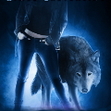date newest »
newest »
 newest »
newest »
message 1:
by
Seanearlyaug
(new)
Dec 29, 2017 04:26PM
 The one that I am trying now, and I have read most of that list above, is Anatomy of Story. After a first chapter rant on why his way is better, it provides insights on why to write.
The one that I am trying now, and I have read most of that list above, is Anatomy of Story. After a first chapter rant on why his way is better, it provides insights on why to write.
reply
|
flag
 I have *so* many writing books. But the ones you recommend would be among the ones I would recommend.
I have *so* many writing books. But the ones you recommend would be among the ones I would recommend. I would include the unfortuately titled "Writing Fiction for Dummies" for any beginner. It explains things like head hopping and how to flashback properly.
Inspirational books like Bradburys, and general writing books like King's and Card's are good, but getting exact tactical advice is wonderful.
Also look at one or more of your fav writers, see if you can understand what they are doing. I was told to look at an early work of an established writer, see where they started, learn at the level that is accessable to a beginner.
King started as a Lovecraft wantabee.
Mercedes Lackey, in her first few, did not understand her editors needs, but eagerly tried to fill the editorial directions.
Two further bits of advice from the writers at Loscon 2016:
1) Short stories to hone craft, novels to pay (part of an answer from a writer who won an award with her first novel, noting that short stories and newspaper work got her up to speed to win that award)
2) Perfection is Procrastination; it need not be perfect, just awesome.
 Editing.
Editing. Read it aloud with the manuscript open for instant correction. A large part of a critique group is hearing your story read aloud. Great for hearing bad dialog, other errors, for me can catch an error per page.
Get a text to speak app, many are free, a few free ones are not robot speech. Again, use this with ms ready to be edited. This will catch those places where ones memory fills in things that are not there.
There is much more to editing. A friend is trying to build an app that will replace grammary. EditMinion is rather good even if they force the story to be keyholed though a chunk limited device.
Critique groups help. Beta readers help.







